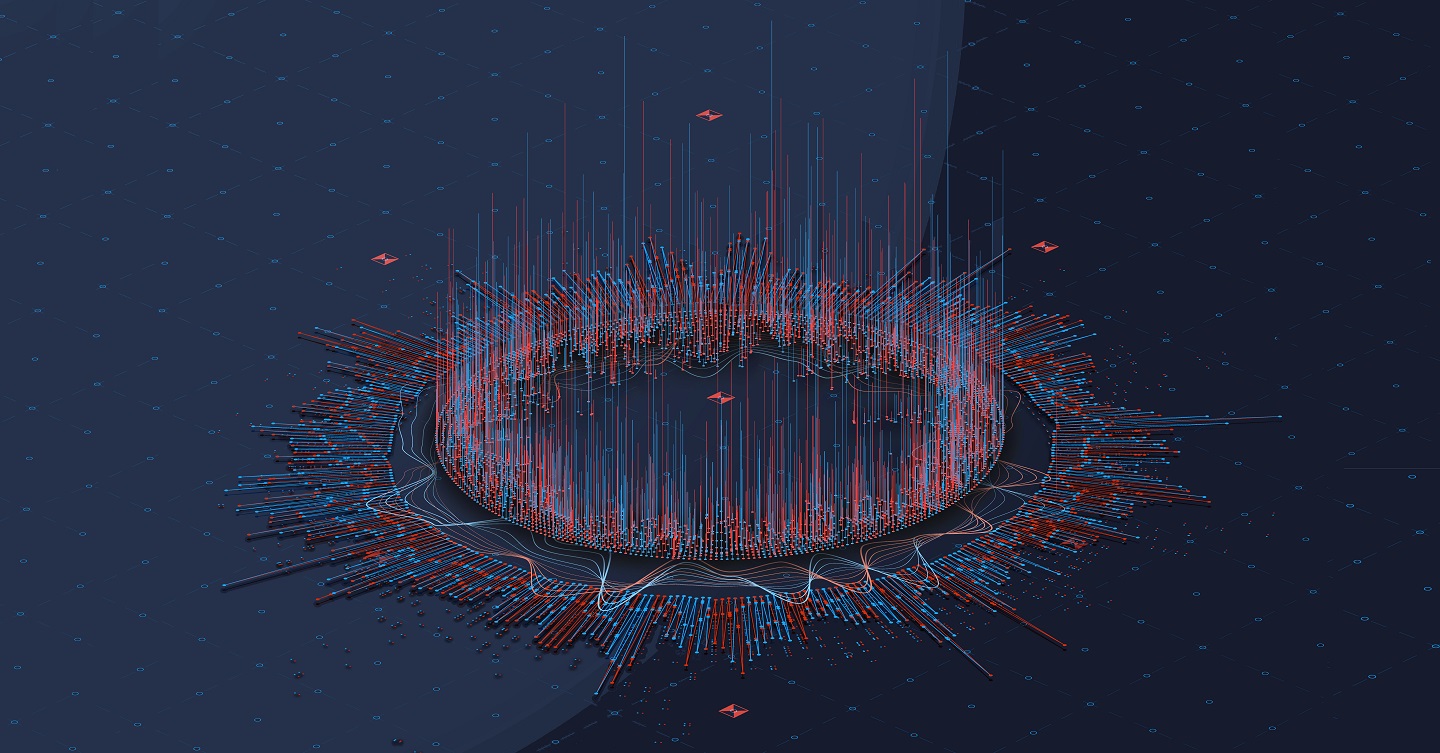
One of the most obvious ways to assign value to data is to monetize it which can be done in two different ways–direct monetization, and indirect monetization.
The amount of data created worldwide is 2.5 quintillion (million trillion) data points daily. While any given war college generates a dramatically less amount of data each day, it does not mean those data do not have value, lots of value. Since 2017, data has been the world’s most valuable commodity, beating out oil for the top slot. Data is what makes companies like Google, Amazon, and Tesla so valuable. Yes, that’s right, Google isn’t a search engine, it’s a data company, Amazon isn’t an online bookstore, it’s a data company. Tesla doesn’t make electric cars, it’s a data company.
Data has all the earmarks of a traditional asset, like real estate, even though it is not yet accepted within current accounting practices. One of the most obvious ways to assign value to data is to monetize it which can be done in two different ways–direct monetization, and indirect monetization. Direct monetization involves selling the data as a product which is an activity the U.S. military would unlikely engage in. Indirect monetization occurs when data is used to increase efficiency and/or effectiveness in an operation to either increase revenue or decrease costs. A great reference on how organizations use data to create value is Infonomics: How to monetize, manage, and measure information for a competitive advantage by Doug Laney.
Most corporations employ a CDO, and the majority of CDOs use those data to generate revenue for their company. The military at large requires data, a sufficient ability to analyze those data, and at least a modicum of data literacy at the strategic level to understand how to leverage it. Militaries measure themselves in various ways including readiness, capabilities, and sustainability. Using data to increase the value of strategic assets while decreasing risk and costs is equally as important to the military as a private company. However, U.S. war colleges have not gone beyond the anecdotal, or at best the descriptive, to provide evidence detailing the value it provides to its strategic leaders, international fellows and their countries, and its impact on the military’s strategic assets.
There is vast amount of valuable data at the U.S. Army War College, but instead of having a useful data lake where data is stored in a central location for easy access, the U.S. Army War College has a data swamp consisting of many stagnant pools of dirty data. Current efforts are underway to solve this problem, but clear resolution has yet to be realized. The magnitude of this issue was discovered in a working group led by the U.S. Army War College Provost. While the working group was successful at solving the immediate concern involving institutional assessments, a data governance problem presented itself. Undoubtedly, these issues, and issues senior service colleges have not thought of, are in dire need of correction.
The U.S. Army War College strives to be at the cutting edge of joint professional military education and fulfill the guiding priorities of the Secretary of the Army. The U.S. Army War College Commandant has continually expressed the desire develop the Secretary’s second objectives in her priorities. This second objective entails ensuring the Army becomes more data centric. Although the Army War College will soon welcome its first Chief Information Officer (CIO), it has never had a Chief Data Officer (CDO). This is not unique to the Army War College, none of the other senior service colleges have CDOs either.
What is a CDO?
The management and consulting firm Gartner defines a CDO is a senior executive who bears responsibility for the firm’s enterprise wide data and information strategy, governance, control, policy development, and effective exploitation. The CDO’s role will combine accountability and responsibility for information protection and privacy, information governance, data quality and data life cycle management, along with the exploitation of data assets to create business value.” The role of a CDO involves de-risking data driven project and creating a competitive advantage using data.
It is important to establish the difference between a CDO and a CIO. Many people may confuse the two because they often strive to achieve the same, or at least similar, strategic goals. CIOs are the strategists of internet technology (IT) and are responsible for all business intelligence. The CIO seeks out and secures the most appropriate IT and overseas its service management. The skillset of a CIO often falls outside the domain of analytics. Because of this shortcoming, the depth and breadth required to achieve success in a data driven domain is not possible with a CIO alone.
The Department of Defense (DoD) published the DoD Data Strategy that outlines the goals and objectives of leveraging data in the military. The DoD Data Strategy focuses on three areas that are highly reliant on data to create an advantage. The first focus area is joint all-domain operations, the second being senior leader decision support, and the final focus area being business analytics to drive informed decisions at all levels. Application of data in these areas is designed to be implemented quickly to generate lessons learned for future application.
At the time of writing this article, Dr. David Markowitz is the CDO for the U.S. Army and is responsible for executing the Department of Defense’s (DoD) Data Strategy. Dr. Markowitz has stated that the Army has made great progress in the culture that includes connecting policymakers with the individuals making raw data meaningful. Unfortunately, the culture shift has not reached all corners of the Army or military at large. Other services have their own CDOs or equivalents and even some Army branches, like the U.S. Army Corps of Engineers, but the data culture Dr. Markowitz envisioned has yet to reach education. Senior service colleges have their own strategies and require an executive to create a strategy and design plans to fulfill those strategic goals.
In part, it is not surprising that senior service colleges do not have a CDO. The concept of a CDO is relatively new when compared to a CIO, let alone other longstanding titles that comprise the C-suite.
In addition to a lack of clear objectives, CDOs do not have a network to work with them. CDOs for senior service colleges should have a clear structure with a semi structure of goals.
The Solution: A CDO Network
Few CDOs are provided with any kind of objective when they join an organization in the private sector. In addition to a lack of clear objectives, CDOs do not have a network to work with them. CDOs for senior service colleges should have a clear structure with a semi structure of goals. Each senior service college CDO will be plugged into a CDO network comprising the CDOs of all other senior service colleges apart from having individualized objectives set in place by each college.
Ideally each senior service college should have its own CDO. This only makes sense because naval, air, and land strategies are not identical; therefore, their educational goals are different. Each senior service college CDO should have ongoing communication with their respective counterpart at a higher echelon. For instance, the Army War College CDO with have regular meetings with the Army CDO, Dr. Markowitz. This communication with help the college, and even big army, revise strategies as plans are set in motion.
All senior service college CDOs should also hold regularly scheduled meetings to discuss intra-college trends and inter-college data governance. By inter-college data governance, I mean sharing data. While it is important to maintain data security, there is little benefit to data secrecy among the colleges especially when two goals of the DoD Data Strategy are to make data visible and accessible. In a world of big data, the military needs to get more comfortable with the velocity of data which is one of the 5 Vs of big data. The military is notorious for its data silos. Organizations, or departments within organizations, refuse to share data even when it is mutually beneficial to do so. Having an inter-college CDO network will break up data silos internally while at the same time increase the speed at which senior service colleges meet their objectives and improve the quality of their overall products.
Conclusion
In summation, CDOs have become a vital part of an organization’s operations. Unfortunately, senior service colleges and professional military education are falling behind in all things data. Despite this, senior service colleges have a degree of autonomy and flexibility to be the laboratories of strategic military education and experiment with new concepts. CDOs can be a vital part of that experimentation process. Ideally, CDOs will help design and implement salient data-driven strategies that makes strategic education as effective as possible.
Nicholas Blasco is the Professor of Data and Analytics in the Strategic Landpower and Futures Group at the U.S. Army War College.
The views expressed in this article are those of the author and do not necessarily reflect those of the U.S. Army War College, the U.S. Army, or the Department of Defense.
Photo Credit: Image by GarryKillian on Freepik





The author has outlined a good charter and rationale for a CDO at the SSCs, but the manning requirements for such a position are probably undoable. The main premise suggests that the data from the War Collges will be useful and increase productivity/value for the Military, possibly our Nation. Instead of hiring a CDO, why doesn’t the Army War College, ARSTAF, Joint Staff, or OSD, fund a study to examine the value of the data and then proceed on a path for maximizing ROI on data collection and analysis from the SSCs?